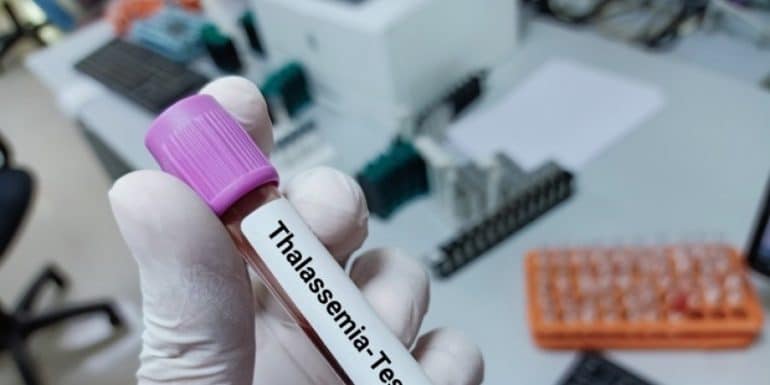A landmark decision in the "battle" to definitively treat thalassemia is the recent approval by the US Food and Drug Administration (FDA) of the gene therapy beti-cel (Zynteglo) for adult and pediatric patients suffering from beta-thalassemia who require regular red blood cell transfusions , the International Thalassemia Federation (IOTH) states in a statement.
This, he notes, is a great development that allows patients with this serious blood disorder to hope for a more optimistic future, free from the lifelong burden and great medical and other care needs that come with living with this disease.
As reported, multiple clinical trials of Zynteglo administration in beta-thalassemia patients have documented its safety and efficacy with most of them achieving complete independence from painful, chronic blood transfusions and exhibiting high levels of hemoglobin in their bodies.
Although the product in question had secured the approval of the European Medicines Agency (EMA) in 2019, notes the IOTH, it never managed to reach patients, since the manufacturing company withdrew it from the European market due to the impossibility of concluding agreements with the national health insurance organizations on its final sale price.
Three years later, the announcement continues, the US drug regulatory authority, after a series of intensive consultations with its relevant advisory committees and the Institute for Clinical and Economic Review (ICER), processes in which the International Thalassemia Federation (ITH) was actively involved and contribution, recognized the therapeutic benefit of Zynteglo and agreed to provide the product as a potential treatment option to eligible patients.
The IOC welcomes the FDA's historic decision as extremely important for thalassemia patients in America and worldwide. "We now have before us the great challenge of ensuring that this product and other breakthrough treatments expected to be approved in the near future are truly accessible to all patients, not only in the US, but also in the rest of the world, where the majority of thalassemia sufferers live", notes the Executive Director of IOTH, Dr. Androulla Eleftheriou.
"The high cost may, at first, seem like a disincentive to the use of such one-off treatments, however the significant savings for health systems in the long term are proven. And this is a factor that must be factored into the equation by the decision-makers when they make relevant decisions," he adds.
The Federation is committed to continuing, through its work and actions, to fight alongside patient organisations, governments, the scientific community and, of course, sufferers themselves, until the benefits of scientific and medical innovation become tangible for every patient with thalassemia and other hemoglobinopathies.
Source: KYPE
